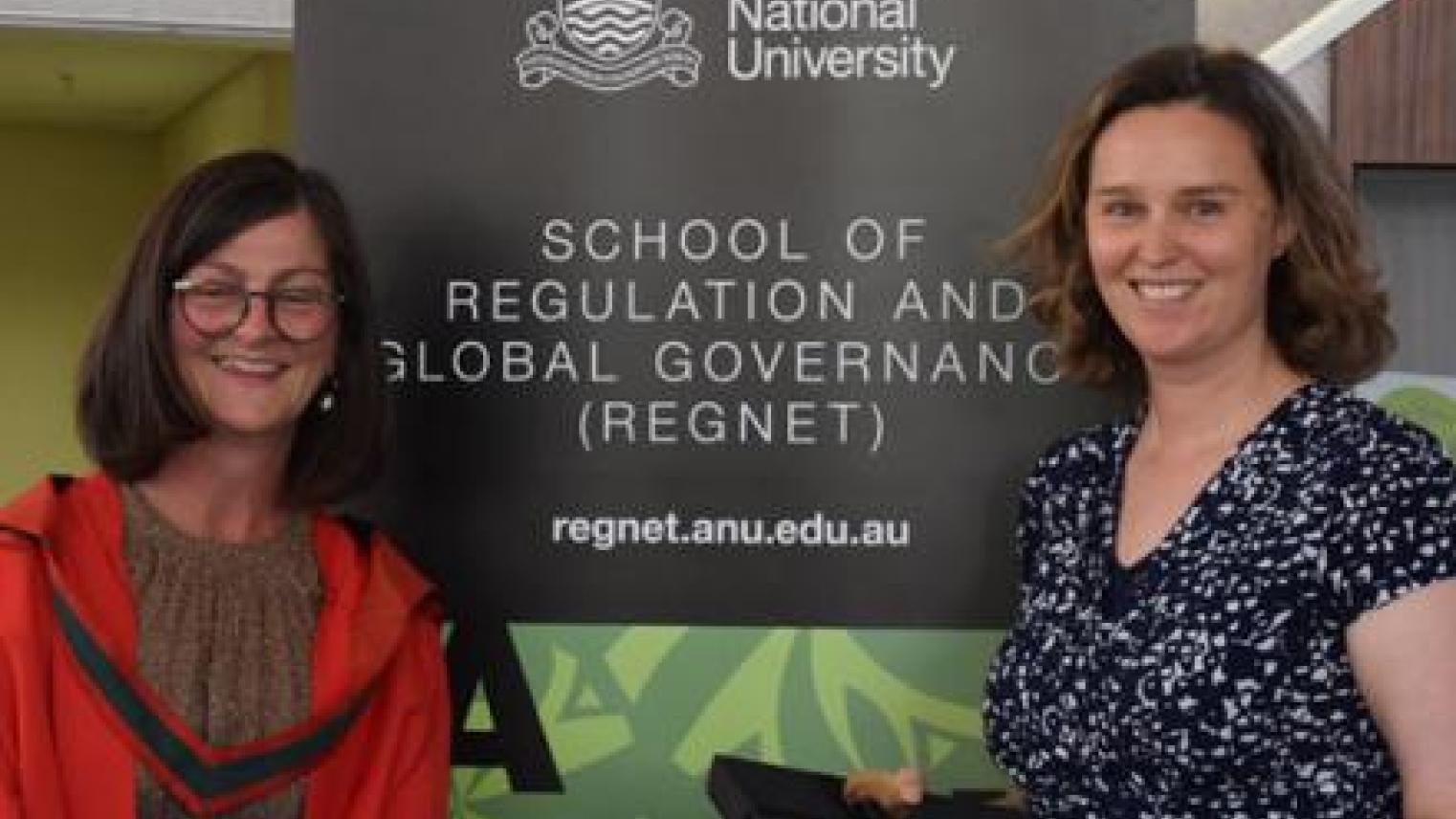Anthea Roberts awarded J.G. Crawford Prize at 2019 December graduation

During the 2019 December graduation ceremony ANU RegNet’s Professor Anthea Roberts was awarded the J.G Crawford Prize.
The J.G. Crawford Prize was established in 1973 to recognise Sir John Crawford’s outstanding contributions to the University and is awarded to students who have produced graduate work of outstanding quality and academic excellence.
Anthea was awarded the Prize for her PhD thesis which she later published into a book titled “Is International Law International?” (2017 OUP).
“This prize is a signal honour – it is awarded for the best thesis submitted at the ANU in the humanities and social sciences and this is very tough competition” said Professor Hillary Charlesworth Anthea’s thesis supervisor.
“The ambition of Anthea’s thesis – challenging the traditional account of international law as universally applicable – was matched by its superb execution. Anthea undertook a detailed study of the way that international law is taught in France, the UK, China, Russia and the United States – the five permanent members of the United Nations Security Council.”
“This involved examining course curricula, textbooks and data on student study patterns and academic employment, as well as analysing national jurisprudence. Anthea skilfully observed the profound variations between jurisdictions and made a sustained and original argument that international law is deeply inflected by local and regional patterns.”
“Anthea’s thesis also discusses her own experience as an Australian student of international law, studying as a graduate in the United States and then working in the United Kingdom. This is a very thoughtful and moving aspect of the thesis, which has attracted much attention and has inspired younger scholars of international law.” “Anthea will be the first to acknowledge that she didn’t find this an easy project to undertake, and had times of doubt and uncertainty. So, the success of the thesis is a great reminder of the power of persistence and staying the course.”
Since its publication, Anthea’s book has won numerous prizes, including the American Society of International Law’s Certificate of Merit for Preeminent Contribution to Creative Scholarship, and was Oxford University Press’s top-selling law monograph worldwide in 2017 and 2018.